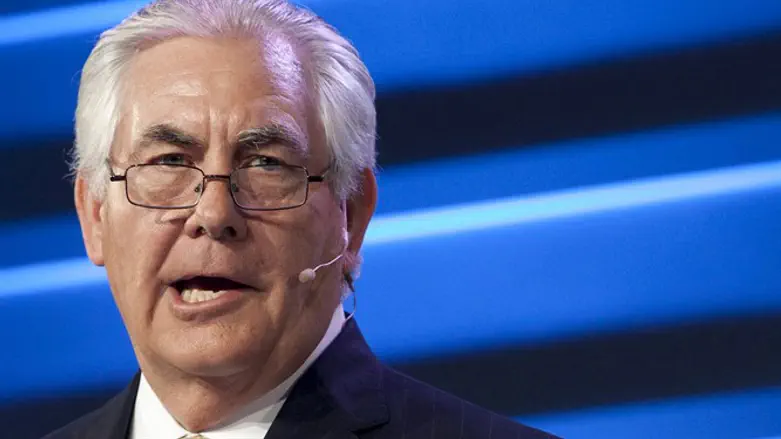
The United States seeks the peaceful denuclearization of North Korea, but is also prepared to defend itself and its allies, Secretary of State Rex Tillerson, Secretary of Defense James Mattis and Director of National Intelligence Dan Coats said on Wednesday.
The three released a joint statement following a briefing at the White House on the deteriorating situation with North Korea, attended by the entire Senate.
“Past efforts have failed to halt North Korea’s unlawful weapons programs and nuclear and ballistic missile tests. With each provocation, North Korea jeopardizes stability in Northeast Asia and poses a growing threat to our allies and the U.S. homeland,” they said.
“North Korea’s pursuit of nuclear weapons is an urgent national security threat and top foreign policy priority. Upon assuming office, President Trump ordered a thorough review of U.S. policy pertaining to the Democratic People’s Republic of Korea (DPRK).
“Today, along with Chairman of the Joint Chiefs of Staff Gen. Joe Dunford, we briefed members of Congress on the review. The president’s approach aims to pressure North Korea into dismantling its nuclear, ballistic missile, and proliferation programs by tightening economic sanctions and pursuing diplomatic measures with our allies and regional partners,” the statement said.
“We are engaging responsible members of the international community to increase pressure on the DPRK in order to convince the regime to de-escalate and return to the path of dialogue. We will maintain our close coordination and cooperation with our allies, especially the Republic of Korea and Japan, as we work together to preserve stability and prosperity in the region.
“The United States seeks stability and the peaceful denuclearization of the Korean peninsula. We remain open to negotiations towards that goal. However, we remain prepared to defend ourselves and our allies,” concluded the statement.
In a move which demonstrated how seriously it takes the North Korean threat, the U.S. military on Tuesday started moving parts of the Terminal High Altitude Area Defense (THAAD) anti-missile defense system into a planned deployment site in South Korea.
The United States and South Korea agreed last year to deploy THAAD in response to the threat of missile launches by North Korea.
North Korea's military has in the past threatened a "physical response" if the United States and South Korea deploy the advanced missile defense system to the Korean peninsula.
North Korea has continued to conduct nuclear and missile tests in violation of UN Security Council sanctions.